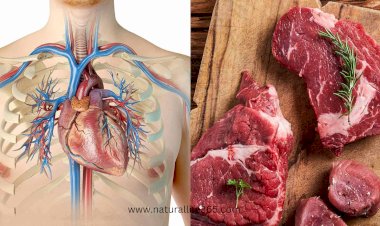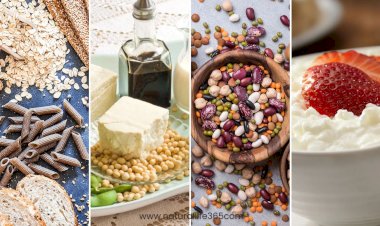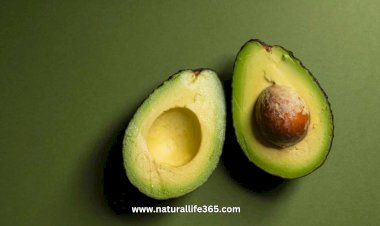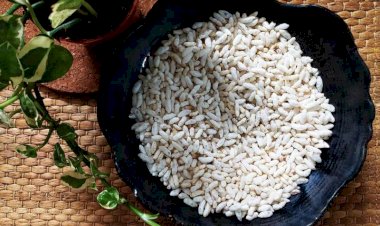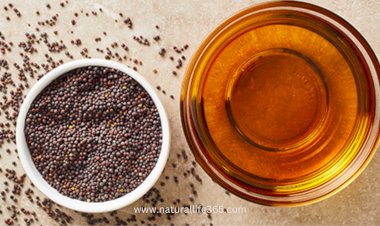Vegetarianism and Weight Loss: Strategies for Success
Explore effective strategies for losing weight on a vegetarian diet. Learn about balanced nutrition, meal planning, and maintaining a healthy lifestyle as a vegetarian.
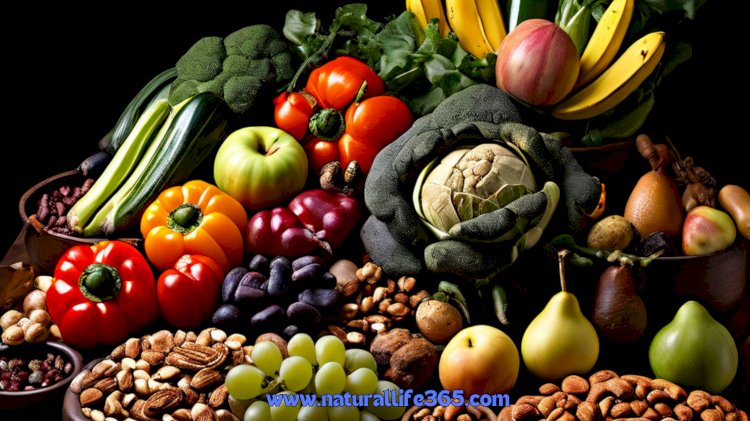
In recent years, vegetarianism has gained widespread popularity not only for its ethical and environmental benefits but also for its potential to support weight management and overall health. Whether you're considering a switch to a vegetarian diet or looking to optimize your current approach, understanding how to navigate this dietary choice for weight loss can be transformative. This blog aims to explore the principles and practical strategies that can help you achieve your weight loss goals while following a vegetarian lifestyle. From nutrient-rich meal plans to effective habits and common pitfalls to avoid, let's delve into the world of vegetarianism and uncover strategies for successful weight loss.
Understanding Vegetarianism
Vegetarianism is a dietary choice that abstains from consuming meat, poultry, and seafood. This lifestyle embraces a variety of approaches, each with its own nuances:
Types of Vegetarian Diets:
- Lacto-ovo vegetarian: Includes dairy products and eggs but excludes meat, poultry, and seafood.
- Vegan: Excludes all animal products, including dairy, eggs, and sometimes honey.
- Ovo-vegetarian: Includes eggs but excludes meat, poultry, seafood, and dairy products.
- Lacto-vegetarian: Includes dairy products but excludes meat, poultry, seafood, and eggs.
- Pescatarian: Includes seafood but excludes meat and poultry.
Vegetarian diets are rich in plant-based foods such as fruits, vegetables, whole grains, legumes, nuts, and seeds. These foods provide essential nutrients like fiber, vitamins (such as vitamin C and folate), minerals (such as potassium and magnesium), and phytonutrients that contribute to overall health and well-being.
Nutritional Benefits:
- Fiber: Found abundantly in plant-based foods, fiber promotes digestive health and contributes to a feeling of fullness, which can aid in weight management.
- Antioxidants: Many plant foods are rich in antioxidants, which help combat oxidative stress and inflammation in the body.
- Lower Caloric Density: Compared to animal products, plant-based foods often have lower caloric density, making it easier to consume larger portions with fewer calories.
Understanding these aspects of vegetarianism forms the foundation for implementing effective weight loss strategies within this dietary framework. By embracing a well-planned vegetarian diet, individuals can not only support their weight loss goals but also enhance their overall health and vitality.
You can also read Apple Cider Vinegar: Health Benefits and Uses
Benefits of Vegetarianism for Weight Loss
Adopting a vegetarian diet can be a powerful ally in your weight loss journey. The following benefits highlight why a plant-based diet is often linked to successful weight management:
Lower Calorie Density
Plant-based foods such as fruits, vegetables, and whole grains tend to have a lower calorie density compared to animal products. This means you can eat larger portions while consuming fewer calories, making it easier to create a calorie deficit for weight loss.
High Fiber Content
Fiber is abundant in a vegetarian diet, found in foods like legumes, vegetables, fruits, and whole grains. High fiber intake promotes satiety, helping you feel full for longer periods and reducing the likelihood of overeating. Additionally, fiber aids in digestive health and regular bowel movements.
Rich in Nutrients and Antioxidants
Vegetarian diets are typically rich in essential nutrients and antioxidants that support overall health. Nutrients like vitamins A, C, and E, as well as phytonutrients found in plant-based foods, help reduce inflammation and support metabolic processes, contributing to effective weight loss.
Improved Metabolic Health
Studies have shown that plant-based diets can improve metabolic markers such as blood sugar levels, cholesterol levels, and blood pressure. Improved metabolic health can enhance your body's ability to burn calories efficiently and support weight loss.
Reduced Consumption of Processed Foods
A well-planned vegetarian diet encourages the consumption of whole, unprocessed foods. By focusing on natural foods, you are likely to reduce the intake of high-calorie, processed items that contribute to weight gain.
Ethical and Environmental Motivation
The ethical and environmental benefits of a vegetarian diet can provide additional motivation to adhere to this lifestyle. Knowing that your dietary choices contribute to animal welfare and environmental sustainability can strengthen your commitment to maintaining a healthy weight.
Key Strategies for Weight Loss on a Vegetarian Diet
Achieving weight loss on a vegetarian diet requires a balanced approach that emphasizes nutrient-dense foods, mindful eating habits, and regular physical activity. Here are some key strategies to help you succeed:
Balanced Nutrition
- Protein Intake: Ensure you consume adequate protein to support muscle maintenance and satiety. Include protein-rich foods such as legumes (beans, lentils, chickpeas), tofu, tempeh, seitan, quinoa, and Greek yogurt if you’re not vegan.
- Healthy Fats: Incorporate healthy fats from sources like avocados, nuts, seeds, and olive oil. These fats are essential for hormone regulation and can help you feel full longer.
- Carbohydrates: Choose complex carbohydrates such as whole grains (brown rice, oats, quinoa), fruits, and vegetables. These provide sustained energy and are rich in fiber.
Portion Control
- Mindful Eating: Pay attention to hunger and fullness cues to avoid overeating. Eat slowly and savor each bite.
- Portion Sizes: Use smaller plates and bowls to help control portion sizes. Be mindful of high-calorie foods like nuts, seeds, and cheese, even though they are nutritious.
Meal Planning and Preparation
- Advance Planning: Plan your meals and snacks for the week to avoid impulsive eating. This helps ensure you have healthy options readily available.
- Batch Cooking: Prepare larger quantities of meals and freeze portions for later use. This saves time and reduces the temptation to opt for less healthy convenience foods.
Incorporating Whole Foods
- Focus on Whole Foods: Emphasize whole, unprocessed foods like fruits, vegetables, whole grains, legumes, nuts, and seeds. These foods are nutrient-dense and support weight loss.
- Minimize Processed Foods: Limit the intake of processed vegetarian foods like meat substitutes, chips, and sugary snacks, which can be high in calories and low in nutrients.
Regular Physical Activity
- Exercise Routine: Incorporate regular physical activity into your routine. Aim for at least 150 minutes of moderate-intensity aerobic activity or 75 minutes of vigorous-intensity activity per week, along with muscle-strengthening exercises on two or more days per week.
- Variety of Activities: Engage in a mix of cardio, strength training, and flexibility exercises to keep your routine interesting and effective.
Common Pitfalls and How to Avoid Them
While a vegetarian diet offers numerous benefits for weight loss, several common pitfalls can hinder progress. Here are some of these challenges and tips on how to avoid them:
Overeating High-Calorie Vegetarian Foods
- Nuts and Seeds: Although packed with healthy fats and nutrients, nuts and seeds are calorie-dense. Measure portions to avoid overconsumption.
- Cheese and Dairy Products: These can be high in calories and fat. Opt for lower-fat versions and be mindful of portion sizes.
- Avocados: Nutrient-rich but high in calories. Enjoy in moderation.
Reliance on Processed Vegetarian Foods
- Meat Substitutes: Many plant-based meats are highly processed and can be high in sodium and unhealthy fats. Choose minimally processed options and check nutrition labels.
- Vegetarian Junk Food: Chips, cookies, and other snacks labeled as vegetarian can still be high in sugar, salt, and unhealthy fats. Focus on whole, unprocessed foods.
Inadequate Nutrient Intake
- Protein: Ensure adequate protein intake by including a variety of plant-based protein sources such as beans, lentils, tofu, and quinoa.
- Vitamin B12: Since B12 is mainly found in animal products, consider fortified foods or supplements.
- Iron: Plant-based iron sources include lentils, chickpeas, and spinach. Pair with vitamin C-rich foods to enhance absorption.
Skipping Meals
- Regular Eating Schedule: Skipping meals can lead to overeating later in the day. Maintain a regular eating schedule with balanced meals and snacks.
- Balanced Meals: Ensure each meal contains a mix of protein, healthy fats, and complex carbohydrates to keep you satisfied and energized.
Lack of Meal Variety
- Diversify Your Diet: Eating the same meals repeatedly can lead to nutrient deficiencies and boredom. Experiment with new recipes and ingredients to keep your diet interesting and nutritionally balanced.
- Seasonal Produce: Incorporate seasonal fruits and vegetables to add variety and maximize nutritional intake.
Ignoring Portion Sizes
- Portion Control: Even healthy foods can contribute to weight gain if consumed in large quantities. Use smaller plates, measure servings, and avoid eating directly from packages.
- Mindful Eating: Pay attention to hunger and fullness cues, and avoid distractions like TV or phones during meals.
Sample Meal Plans and Recipes
Creating a structured meal plan can help you stay on track with your weight loss goals while ensuring you get a variety of nutrients. Here’s a sample 7-day vegetarian meal plan along with some easy and nutritious recipes to get you started:
Day 1
- Breakfast: Greek yogurt with mixed berries and a drizzle of honey
- Lunch: Quinoa salad with chickpeas, cucumber, tomatoes, and feta cheese
- Dinner: Stir-fried tofu with broccoli, bell peppers, and brown rice
- Snack: Apple slices with almond butter
Day 2
- Breakfast: Oats with chia seeds, banana, and almond milk
- Lunch: Lentil soup with a side of whole-grain bread
- Dinner: Black bean and sweet potato tacos with avocado and salsa
- Snack: Carrot sticks with hummus
Day 3
- Breakfast: Smoothie with spinach, banana, almond milk, and protein powder
- Lunch: Spinach and feta stuffed portobello mushrooms
- Dinner: Eggplant and chickpea curry with quinoa
- Snack: Mixed nuts and dried fruit
Day 4
- Breakfast: Avocado toast on whole-grain bread with a sprinkle of chia seeds
- Lunch: Mixed greens salad with roasted vegetables and balsamic vinaigrette
- Dinner: Vegetable stir-fry with tempeh and soba noodles
- Snack: Greek yogurt with a handful of granola
Day 5
- Breakfast: Whole-grain waffles with fresh berries and a dollop of Greek yogurt
- Lunch: Mediterranean chickpea salad with olives, tomatoes, and cucumbers
- Dinner: Stuffed bell peppers with brown rice, black beans, and corn
- Snack: Celery sticks with peanut butter
Day 6
- Breakfast: Smoothie bowl with blended berries, spinach, and topped with granola
- Lunch: Butternut squash soup with a side of whole-grain crackers
- Dinner: Cauliflower curry with basmati rice and steamed green beans
- Snack: Sliced cucumber with tzatziki dip
Day 7
- Breakfast: Chia pudding with almond milk, topped with sliced almonds and strawberries
- Lunch: Falafel wrap with hummus, lettuce, tomatoes, and cucumbers
- Dinner: Zucchini noodles with marinara sauce and grilled portobello mushrooms
- Snack: Fresh fruit salad
Easy and Nutritious Recipes
1. Quinoa Salad with Chickpeas and Feta Cheese
Ingredients:
- 1 cup cooked quinoa
- 1 can chickpeas, drained and rinsed
- 1 cucumber, diced
- 1 cup cherry tomatoes, halved
- 1/4 cup feta cheese, crumbled
- 2 tbsp olive oil
- 1 tbsp lemon juice
- Salt and pepper to taste
Instructions:
1. In a large bowl, combine quinoa, chickpeas, cucumber, tomatoes, and feta cheese.
2. Drizzle with olive oil and lemon juice, then season with salt and pepper.
3. Toss to mix well and serve chilled.
2. Black Bean and Sweet Potato Tacos
Ingredients:
- 1 large sweet potato, peeled and cubed
- 1 can black beans, drained and rinsed
- 1 avocado, sliced
- 1/2 cup salsa
- Small whole-wheat tortillas
- Olive oil, for roasting
- Salt and pepper to taste
Instructions:
1. Preheat oven to 400°F (200°C).
2. Toss sweet potato cubes with olive oil, salt, and pepper. Roast for 20-25 minutes until tender.
3. Warm tortillas in a skillet.
4. Fill each tortilla with roasted sweet potato, black beans, avocado slices, and salsa.
5. Serve immediately.
3. Spinach and Feta Stuffed Portobello Mushrooms
Ingredients:
- 4 large portobello mushrooms
- 2 cups fresh spinach, chopped
- 1/2 cup feta cheese, crumbled
- 1 garlic clove, minced
- 1 tbsp olive oil
- Salt and pepper to taste
Instructions:
1. Preheat oven to 375°F (190°C).
2. Remove stems from mushrooms and brush with olive oil.
3. In a skillet, sauté spinach and garlic in olive oil until wilted. Mix in feta cheese.
4. Stuff each mushroom cap with the spinach mixture.
5. Place mushrooms on a baking sheet and bake for 20 minutes.
6. Serve warm.
These meal plans and recipes are designed to provide a variety of flavors and nutrients, making it easier to stay committed to your weight loss journey while enjoying delicious vegetarian meals.
You can also read Vegan Indian Cuisine: Delicious and Healthy Recipes
Tips for Long-Term Success
Achieving and maintaining weight loss on a vegetarian diet requires more than just short-term changes; it involves adopting sustainable habits that support long-term success. Here are some tips to help you stay on track:
Set Realistic and Achievable Goals
- SMART Goals: Set Specific, Measurable, Achievable, Relevant, and Time-bound goals. For example, aim to lose 1-2 pounds per week or incorporate three new vegetables into your meals each week.
- Progress Tracking: Regularly monitor your progress through a journal, app, or photos. This helps you stay motivated and make necessary adjustments.
Practice Mindful Eating
- Awareness: Pay attention to your hunger and fullness cues. Eat slowly and savor each bite to avoid overeating.
- Avoid Distractions: Minimize distractions like TV or smartphones during meals to focus on the experience of eating.
Stay Hydrated
- Water Intake: Drink plenty of water throughout the day to stay hydrated and support your metabolism. Sometimes thirst can be mistaken for hunger.
- Healthy Beverages: Opt for herbal teas, infused water, or other low-calorie beverages instead of sugary drinks.
Get Adequate Sleep
- Sleep Schedule: Aim for 7-9 hours of sleep per night. Poor sleep can affect hunger hormones and increase cravings for high-calorie foods.
- Sleep Hygiene: Establish a relaxing bedtime routine and create a comfortable sleep environment to improve sleep quality.
Seek Support
- Community: Join a support group or online community of like-minded individuals. Sharing experiences and tips can provide motivation and encouragement.
- Professional Guidance: Consider consulting a registered dietitian or nutritionist who can provide personalized advice and support.
Embrace Variety and Flexibility
- Diverse Diet: Keep your meals interesting by trying new recipes, cuisines, and seasonal produce. This prevents boredom and ensures a broad range of nutrients.
- Flexibility: Allow yourself some flexibility to enjoy treats in moderation. This helps prevent feelings of deprivation and promotes a balanced approach.
Incorporate Physical Activity
- Routine Exercise: Include regular physical activity in your lifestyle. Choose activities you enjoy, such as walking, yoga, cycling, or dancing, to make exercise more enjoyable.
- Active Lifestyle: Find ways to incorporate movement into your daily routine, such as taking the stairs, walking during breaks, or doing household chores.
Continual Learning and Adaptation
- Stay Informed: Keep up-to-date with the latest nutrition research and trends. This can help you make informed decisions and stay motivated.
- Adaptation: Be open to adjusting your diet and exercise plan based on your progress and changing needs. What works today might need tweaking tomorrow.
Embarking on a weight loss journey with a vegetarian diet offers numerous benefits, from nutrient-dense foods to improved metabolic health. You can achieve sustainable weight loss by understanding the principles of vegetarianism and implementing key strategies such as balanced nutrition, portion control, and regular physical activity. Be mindful of common pitfalls, embrace variety in your meals, and stay committed to your long-term goals. Remember, consistency and a positive mindset are your best allies. By following these tips, you can enjoy a healthier, more vibrant life while successfully managing your weight.
Some Useful Book Recommendations
Are you looking for some book recommendations on vegetarianism and weight loss?
1. The Complete Vegetarian Cookbook: A Fresh Guide to Eating Well with 700 Foolproof Recipes by America's Test Kitchen. A comprehensive guide to vegetarian cooking with a wide variety of recipes and practical tips for a healthy diet.
2. How Not to Diet: The Groundbreaking Science of Healthy, Permanent Weight Loss by Michael Greger M.D. FACLM. This book explores the science behind weight loss and offers practical advice on adopting a plant-based diet for long-term success.
3. The Plant-Based Diet for Beginners: 75 Delicious, Healthy Whole-Food Recipes by Gabriel Miller. Ideal for those new to vegetarianism, this book provides easy-to-follow recipes and a meal plan to get started on a plant-based diet.
4. Forks Over Knives: The Cookbook: Over 300 Recipes for Plant-Based Eating All Through the Year by Del Sroufe. A popular cookbook that offers a wide array of plant-based recipes designed to promote health and weight loss.
5. Vegetarian India: A Journey Through the Best of Indian Home Cooking by Madhur, Jaffrey. This book provides a collection of authentic Indian vegetarian recipes, making it easier to enjoy traditional flavors while maintaining a healthy diet.
6. The 22-Day Revolution: The Plant-Based Program That Will Transform Your Body, Reset Your Habits, and Change Your Life by Marco Borges. A guide to adopting a plant-based diet with a structured 22-day program designed to promote weight loss and improve overall health.
7. Plant-Based Nutrition, 2E (Idiot's Guides) by Julieanna Hever M.S. R.D. A comprehensive guide to plant-based nutrition, offering practical advice on meal planning, nutrient intake, and weight management.
If you value these free online resources provided by Natural Life 365, please consider supporting my website by sharing the blogs ![]()
DISCLAIMER:
Some of the links in this content may be affiliate links. This means that if you click on one of the links and make a purchase, I may receive a commission (at no extra charge to you). However, I only recommend products that I personally use and have tested myself. Also, understand that I have taken reasonable steps to ensure that the information on this content is accurate, but I cannot represent that the website(s) mentioned in this post are free from errors. Please, check the Affiliate Disclosure at the bottom of this website.









